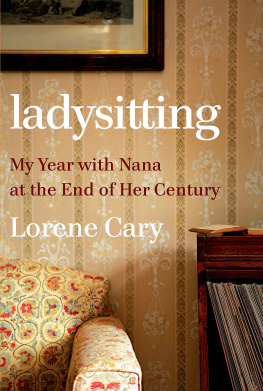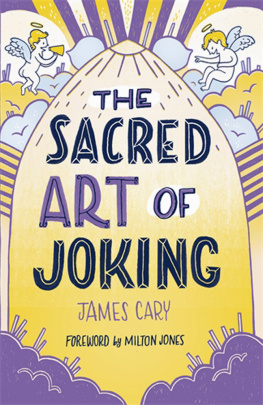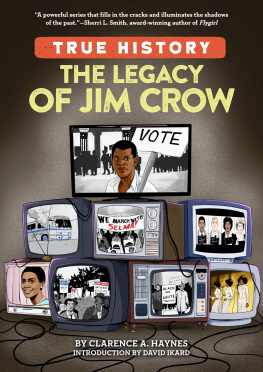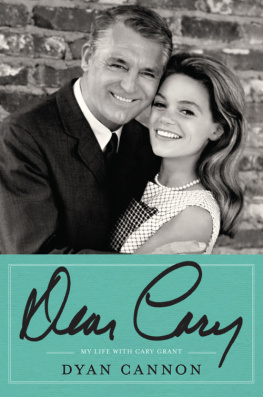Cary - Ladysitting: my year with nana at the end of her century
Here you can read online Cary - Ladysitting: my year with nana at the end of her century full text of the book (entire story) in english for free. Download pdf and epub, get meaning, cover and reviews about this ebook. City: New York, year: 2019, publisher: W. W. Norton & Company, genre: Non-fiction. Description of the work, (preface) as well as reviews are available. Best literature library LitArk.com created for fans of good reading and offers a wide selection of genres:
Romance novel
Science fiction
Adventure
Detective
Science
History
Home and family
Prose
Art
Politics
Computer
Non-fiction
Religion
Business
Children
Humor
Choose a favorite category and find really read worthwhile books. Enjoy immersion in the world of imagination, feel the emotions of the characters or learn something new for yourself, make an fascinating discovery.
- Book:Ladysitting: my year with nana at the end of her century
- Author:
- Publisher:W. W. Norton & Company
- Genre:
- Year:2019
- City:New York
- Rating:4 / 5
- Favourites:Add to favourites
- Your mark:
- 80
- 1
- 2
- 3
- 4
- 5
Ladysitting: my year with nana at the end of her century: summary, description and annotation
We offer to read an annotation, description, summary or preface (depends on what the author of the book "Ladysitting: my year with nana at the end of her century" wrote himself). If you haven't found the necessary information about the book — write in the comments, we will try to find it.
Cary: author's other books
Who wrote Ladysitting: my year with nana at the end of her century? Find out the surname, the name of the author of the book and a list of all author's works by series.
Ladysitting: my year with nana at the end of her century — read online for free the complete book (whole text) full work
Below is the text of the book, divided by pages. System saving the place of the last page read, allows you to conveniently read the book "Ladysitting: my year with nana at the end of her century" online for free, without having to search again every time where you left off. Put a bookmark, and you can go to the page where you finished reading at any time.
Font size:
Interval:
Bookmark:

also by Lorene Cary
If Sons, Then Heirs
Free! Great Escapes from Slavery
on the Underground Railroad
The Price of a Child
Pride
Black Ice
Preface

W hy was it that weekends at Nana Jacksons felt like a world apart? Maybe because, dressed in old ball gowns, I traveled with the sun patch across the floor of the suburban New Jersey neocolonial and soaked in more light and luxe than my parents West Philadelphia apartment could ever offer. Delight and time, the wide-armed, fragrant mimosa to climb in summer, the fireplace to stoke in winter, and choices all the day longwhatever your little heart desires.
Yes, yes, yes, I knew that I was being spoiled, that word that obsessed black grown-ups, and even kids. What could be worse than to be spoiled, ruined by indulgence, incapable of withstanding hardship as we had done and would do in future? We were brought up by hand as surely as Pip in Great Expectations, and much prouder of it than he. You spoiled! could get you a corrective beatdown. Fast. Besides, everybody needed to respect authority, learn limits, and above all, to know that older people valued you, that they loved your undeserving black behind enough to bring you back from wrong to right. I knew myself to be a wimp, a failure in the toughness category, which was why I went insane with terror at the sound of my mother coming for me, or my father reaching for the threatened, though seldom used, belt. If a kid down the street got a beatingand in our cheek-by-jowl row houses we heard each oneId be good for a month!
So, believe you me, as my mother would say before administering some firm guidance by hand, I knew good and well that my whole Nana deal was off-the-charts spoiling. Which was why, with peers, I kept it to myself. What happened in West Collingswood stayed in West Collingswood. Nanas weekend abundance did not feel unconditional, by any means. Our contract was that I would occupy myself while she got things done, and then shed spoil me. But the time alone felt more like Sabbath, as if God visited me occasionally in those sun patches and let me curl up to Its presence.
Ecstatic! I learned in junior high school the word that retrofitted my memory of this meditative, out-of-time, out-of-body joy. It made a through line, connecting to when I was allowed to sit next to the beautiful Ward AME organist Ms. Selena, who bounced from the pew to the organ to the wooden box that got her up to where the choir could see her guiding them to breathe with one breath for us to share. Ecstatic connected to reading the ancient, but living, Bible with my great-grandfather from Barbados, born in the 1800s, who hailed from the other side of the family and the Caribbean. We read Samuel, so that if God called me, in the night, Id know to say, Speak, for your servant is listening. It connected to the Renaissance-era church prose we mumbled to confess to God our transgressions against his Divine majesty. This ecstasy at Nanas and Pop-Pops house, however, transcended transgressions in a childhood buzzing with anxiety about right and wrong and punishment.
One of my earliest memories with Nana, at her house, anchors the rest. I wanted a drink of water and went into the kitchen. Nana wasnt there, so I reached for a glass. They were small Libby juice glasses, diner-style, wavy and thin enough to feel beautiful against my palm. I forget whether I climbed up to reach the metal cabinet that opened with a ping or found the glass on the counter. Either way, I knew it was too high for me, and as I knew it, the tiny tumbler dropped from my hand onto the linoleum, where it crashed into sharp pieces.
Fear flooded me from scalp to gut. My mother had warned me to behave well on these weekends; she sent just-right outfits, perfectly laundered so Id look like somebody cared; she instructed me how to make my hair twists last overnight, because Nana, with her straight hair, never could comb mine right, that is, fuzz-n-naps pulled back hard enough to straighten them. Above all, I was to do there what I had learned at home: to anticipate what was correct and do it before Nana had to ask.
Now, instead, Id shattered one of the thousand glass hazards in this breakable house, with its bric-a-brac ceramic white faces and Chinese antique stuff everywhereall things I was usually careful to look at, but never touch (except for the Chinese doll, which Nana would take out of the cabinet and let me hold in her presence). Id get in trouble with Mommy for failing to be careful, and that would be bad, but I was used to it. What was worse, though, was that I had broken the spell. Id wrecked the charm of my magical place. Nana would be angry; and I would no longer be the trusted, free-range granddaughter, free to play records over and over and pick out tunes on the piano, and dress up, and roam freely to sing and draw and make up stories in the middle-class museum of her house and garden. I could hear her rushing down the carpeted steps. My gut wrenched with dread.
Oh, honey, she asked when she stepped into the kitchen. What happened?
I knew I should admit the wrong and apologize. But how could I? The metal cabinet pressed cold against my back.
Nana looked back and forth, frowning, inspecting the scene like a diorama. She could see my original misjudgment, and, worse yet, the moment of willfulness when I knew better, but grabbed at the glass anyway. I was crying by now. Thats what you get. I think I began apology blubber.
Nana took my right hand, turned it over, and then smiled. I thought you had cut yourself, she said, clearly relieved. We can always get another glass, but we can never get a new hand, can we?
Sabbath returned, not a charm, but a peace we could choose. She never hit me.
And yet this person who provided kindness and delight to my sister and me was at the same time the woman of whom my father, her only child, once said, She never loved me. As I moved into adulthood, Nana showed me more sides of herself, enough so that I understood, even as I grieved, why she and my father, who had seemed inseparable, had stopped speaking. What was love among them or us? Had it ever been real?
Im writing to find out. I want not to forget, but to recall, how the end of my grandmothers life pulled into focus her hundred and one years on earth, the part we shared as well as the earlier life she brought with her into ours. I want to keep company with other families who have lived through and are living in the intense and demanding time of hospice. We underwent a mash-up of fear and mortalityshe was dying, then living again, then dyingand memory and love.
Nana hinged angrily between ancestors coming close and descendants she was about to leave. Her story required me to learn more about the father shed referred to with pride, but only glancingly, and it took me into the halls of Congress and the Jim Crow South he brought his family north to escape. It brought me closer to her son, my father, and drove me farther from him. Death up close and personal meant my husband and daughters, and my sister and her family, riding with Nana in family sidecars through her alt-universe of dreams and visions, and our own, through truth and lies, business and money, and communal and racial memory.
After she died, I felt stuck for years: I couldnt sweep up the odd bits of her business; I couldnt shake the sense that I had not done enough over that long, slow year and a half for her or for my other family members. I did not move easily through anger to acceptance. Nor could I do what Ive done all my life: I couldnt write my way out. That was until Ash Wednesday three years ago. This narrative explores my struggle, like so many others, to find love again each time I lost it, because it is only love, as the Song of Solomon assures us, that is strong as death.
Font size:
Interval:
Bookmark:
Similar books «Ladysitting: my year with nana at the end of her century»
Look at similar books to Ladysitting: my year with nana at the end of her century. We have selected literature similar in name and meaning in the hope of providing readers with more options to find new, interesting, not yet read works.
Discussion, reviews of the book Ladysitting: my year with nana at the end of her century and just readers' own opinions. Leave your comments, write what you think about the work, its meaning or the main characters. Specify what exactly you liked and what you didn't like, and why you think so.







